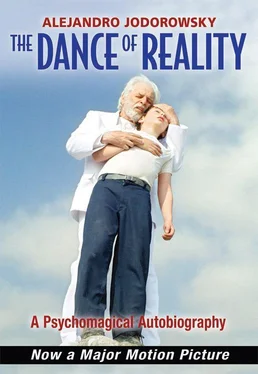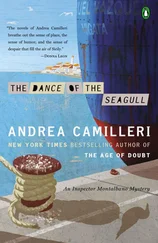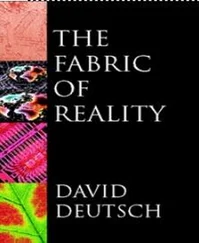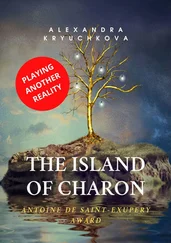Suffering, consolation; consolation, suffering. The cycle has no end. When I brought the shoe shiner’s box to his parents they hastily placed it in the hands of Luciano, the youngest brother. That same afternoon, the boy began shining shoes in the town square.
The fact is that during this era, when I was a child of an unknown race (Jaime did not call himself a Jew, but a Chilean son of Russians), no one ever spoke to me outside of books. My father and mother, at work in the shop from eight in the morning until ten at night, put their faith in my literary abilities and left me to educate myself. And what they saw I could not do for myself, they asked the Rebbe to do.
Jaime knew very well that his father, my grandfather Alejandro, had been expelled from Russia by the Cossacks, arriving in Chile not by his own choice but only because a charitable society shipped him where there was room for him and his family. Completely uprooted, speaking only Yiddish and rudimentary Russian, he descended into madness. In his schizophrenia he invented the character of a Kabbalist sage whose body had been devoured by bears during one of his voyages to another dimension. Laboriously making shoes without the aid of machinery, he conversed constantly with his imaginary friend and master. When he died, Jaime inherited this master. Even though Jaime knew full well that the Rebbe was a hallucination, the effect was contagious. The specter began to visit him each night in his dreams. My father, a fanatical atheist, endured the invasion of this character as a form of torture and did his best to exorcise the phantom — by stuffing my head full of it as if it were real. I was not taken in by this ploy. I always knew that the Rebbe was imaginary but Jaime, perhaps thinking that by naming me Alejandro he had made me as crazy as my grandfather, would tell me, “I don’t have time to help you with that homework, go ask the Rebbe,” or more often still, “Go play with the Rebbe!” This was convenient for him because in his misinterpretation of Marxist ideas he had decided not to buy me any toys. “Those objects are the products of the evil consumer economy. They teach you to be a soldier, to turn life into a war, to believe that all manufactured things are a source of pleasure through having miniature versions of them. Toys turn a child into a future assassin, an exploiter, not to mention a compulsive buyer.” The other boys had toy swords, tanks, lead soldiers, train sets, stuffed animals, but I had nothing. I used the Rebbe as a toy, lending him my voice, imagining his advice, letting him guide my actions. Later, having developed my imagination, I expanded my animated conversations. I endowed the clouds with speech, as well as the rocks, the sea, some of the trees in the town square, the antique cannon outside the city hall, furniture, insects, hills, clocks, and the old people with nothing left to wait for who sat like wax sculptures on the benches in the town square. I could speak with all things, and everything had something to say to me. Assuming the point of view of things outside of myself I felt that all things were conscious, that everything was endowed with life, that things I considered inanimate were slower entities, that things I considered invisible were faster entities. Every consciousness had a different velocity. If I adapted my own consciousness to these speeds, I could initiate rewarding relationships.
The umbrella that lay in a corner, covered with dust, lamented bitterly, “Why did they bring me here, where it never rains? I was made to protect from rain, without it I have no purpose.” “You’re wrong,” I told it. “You still have a purpose; if not at present, at least in the future. Show me patience and faith. One day it will rain, I assure you.” After this conversation a storm broke for the first time in many years, and there was a real deluge that lasted for a whole day. As I walked to school with the umbrella finally open, the raindrops came down with such force that its fabric was shredded in no time. A hurricane-force wind tore it from my hands and carried it in tatters off into the sky. I imagined the pleasant murmurings of the umbrella as it became a boat and happily navigated toward the stars after traversing the storm clouds.
Yearning hopelessly for some affectionate words from my father, I dedicated myself to observing him, watching his actions as if I were a visitor from another world. Having lost his father at the age of ten and needing to support his mother, brother, and two sisters, who were all younger than him, he had abandoned his studies and begun hard work. He could barely write, could read with difficulty, and spoke Spanish in a manner that was almost guttural. Actions were his true language. His territory was the street. A fervent admirer of Stalin he wore the same style of mustache, fashioned with his own hands the same kind of stiff-collared coat, and cultivated the same affable mannerisms behind which an infinite aggressiveness was concealed.

My paternal great-grandparents.
Fortunately, my maternal grandmother’s husband Moishe, who had lost his fortune in the stock market crash but still kept a little shop as a gold dealer, bore a resemblance to Gandhi due to his bald head, missing teeth, and large ears; this balanced things out. Fleeing the severity of the dictator, I took refuge at the knees of the saint. “Alejandrito, your mouth was not made for saying aggressive things; every hard word dries up your soul a little bit. I shall teach you to sweeten your words,” he said. And after painting my tongue with blue vegetable dye, he took a soft-haired brush a centimeter wide, dipped it in honey, and made as if to paint the inside of my mouth. “Now your words will have the color of the blue sky and the sweetness of honey.”
In contrast, for Jaime/Stalin life was an implacable struggle. Unable to slaughter his competitors, he ruined them instead. Casa Ukrania was an armored tank. Since the main street (Calle 21 de Mayo, named for a historic naval battle in which the hero Arturo Prat had turned his defeat at the hands of the Peruvians into a moral triumph) was lined with shops selling the same articles he was selling, he employed an aggressive sales tactic. He declared, “Abundance attracts the buyer; if the seller is prosperous that suggests that he is offering the best goods.” He filled the shelves of the shop with boxes, a sample of the contents sticking out of each box: the tip of a sock, the fold of a stocking, the cuff of a shirtsleeve, the strap of a brassiere, and so on. The store appeared to be full of merchandise, which was not the case, for each box was empty save for the item that was poking out.
In order to awaken customers’ desires he organized items into various lots rather than selling them separately and exhibited collections of things in cardboard boxes. For example, a pair of underwear, six drinking glasses, a clock, a pair of scissors, and a statuette of Our Lady of Mount Carmel; or a wool vest, a piggy bank, some lace garters, a sleeveless shirt, a communist flag, and so forth. All the lots had the same price. Like me, my father had discovered that all things are interrelated.
He hired exotic propagandists to stand in the middle of the sidewalk in front of the door. There was a different one every week. Each one, in his or her own way, would loudly extol the quality and low price of the articles for sale, inviting curious passersby to step inside Casa Ukrania, under no obligation to buy anything. They included, among others, a dwarf in a Tyrolean costume, a skinny man dressed as a nymphomaniacal black woman, a Carmen Miranda on stilts, a wax automaton who beat at the shop windows from the inside with a cane, a ghastly mummy, and a stentorian whose voice was so loud that his shouts could be heard a kilometer away. Hunger created artists; the out-of-work miners invented all sorts of disguises. They would make Dracula or Zorro costumes out of flour sacks from the mill that they had dyed black; masks and warrior’s capes from debris found in garbage cans. One of them brought along a mangy dog dressed in Chilean peasant clothes that danced on its hind paws; another brought a baby that cried like a seagull.
Читать дальше













